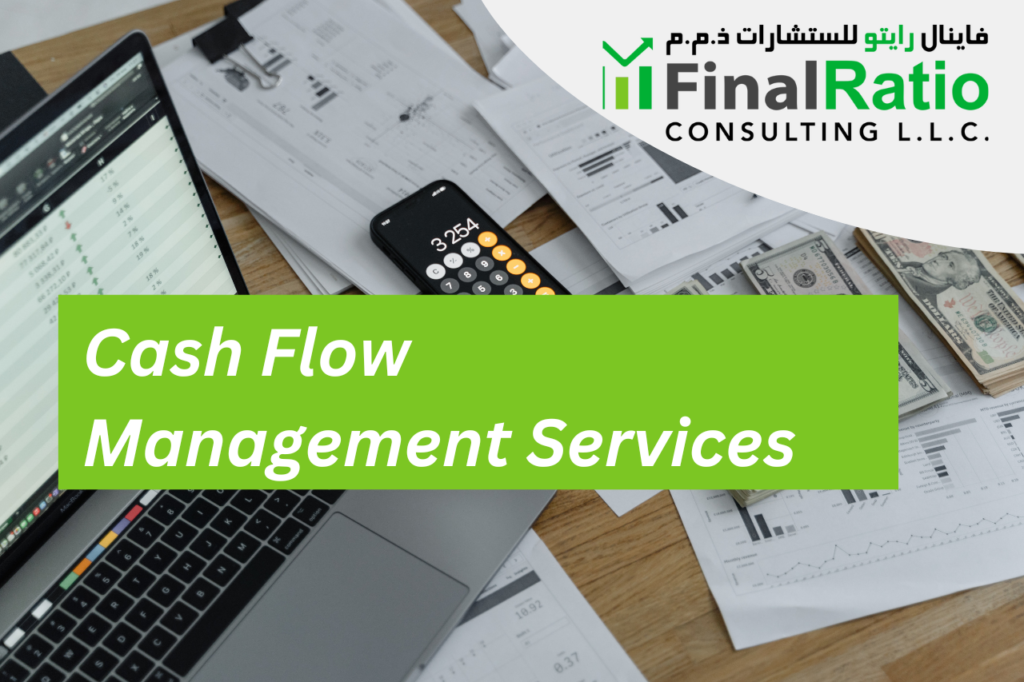
Bookkeeping for Cash Flow Management

Effective bookkeeping is crucial for maintaining healthy cash flow and ensuring business sustainability. By properly tracking financial transactions, businesses can improve record-keeping, manage income and expenses, and make informed decisions. Well-organized financial records provide clarity and help business owners monitor their company’s financial health.
Bookkeeping Provides Real-Time Financial Insights
Accurate bookkeeping services offer businesses a clear picture of their financial health at any given moment. With proper tracking and reporting, companies can analyze their cash flow and make informed decisions based on real-time data.
Well-maintained financial records enhance clarity and allow business owners to track their income and expenses efficiently.
Regular financial analysis helps businesses optimize spending, reduce unnecessary costs, and improve business efficiency.
Enhances Timely Invoicing and Collections
Late payments and overdue invoices can severely impact a business’s cash flow. A structured invoicing system ensures timely payments and prevents financial disruptions.
Automated reminders and financial processes ensure that invoices are sent promptly, reducing payment delays.
Analyzing revenue trends helps businesses anticipate cash shortages and maintain financial stability
Popular Post


Business Analysis Consulting Services

Bookkeeping for Cash Flow Management

What Are the Different Types of Bookkeeping Services?

Introduction to Accounting and Bookkeeping Services

Accounting and Bookkeeping Services in Dubai: A Comprehensive Guide
Better Management of Accounts Payable and Vendor Relationships
Effective management of accounts payable helps businesses maintain good relationships with suppliers and avoid late fees or penalties. Delays in supplier payments can disrupt operations and lead to higher costs.
Proper vendor management ensures on-time financial obligations, strengthening business partnerships.
Monitoring due dates and cash outflows prevents financial strain and helps with cost management.
Payroll and Compliance Management
Payroll errors can lead to financial discrepancies and employee dissatisfaction. Additionally, non-compliance with tax laws and regulations can result in fines and penalties.
Efficient financial activity tracking helps in tax planning and ensures timely tax payments.
Organized bookkeeping services prevent unexpected cash outflows and ensure financial compliance.
Building and Maintaining Cash Reserves
A strong cash reserve acts as a financial safety net during unexpected downturns. By analyzing past data and financial patterns, businesses can prepare for emergencies and maintain liquidity.
Forecasting and financial planning help businesses predict future financial needs.
Allocating extra funding ensures that companies can cover future expenses and invest in growth opportunities.
Regular Reconciliation and Cash Flow Monitoring
Frequent reconciliation of financial reports ensures accuracy and prevents discrepancies in balance sheets, income statements, and cash flow statements.
Reviewing cash flow statements helps in identifying cash flow challenges and reducing financial risks.
Regular reporting accuracy checks improve decision-making and enhance overall financial health.
Fraud Prevention and Internal Controls
Businesses must implement strong internal controls to prevent fraudulent activities. Well-maintained bookkeeping systems help detect unusual financial transactions and prevent losses.
Proper tracking and categorizing of transactions ensure security and minimize unnecessary cash outflows.
Routine expenditure monitoring helps in strengthening financial security and business efficiency.
Leveraging Technology for Bookkeeping Efficiency
Using modern accounting software and tools improves cash flow management by providing real-time tracking and automated reporting. Businesses can enhance financial performance through technology.
Bookkeeping technology ensures faster and more accurate decision-making.
Effective data management improves the handling of financial transactions and enhances financial insights.
Strategic Budgeting and Financial Control
Effective budgeting and financial control enable businesses to maintain strategic planning and set realistic budgets. Proper spending limits help improve business performance.
Well-defined financial benchmarks allow for better income tracking and expenses management.
Maintaining budget alignment ensures optimized financial planning and prevents cash shortages.
Improving Cost Optimization and Expense Tracking
Businesses must focus on cost optimization and monitor expenditure to avoid unnecessary financial burdens. Proper tracking and categorizing of expenses help businesses control spending.
Eliminating unnecessary cash outflows improves financial stability and cash preservation.
Detailed reports provide insights into spending patterns and help refine financial health strategies.

The Role of Financial Forecasting in Business Success
Understanding financial trends is essential for business owners to make strategic decisions. Reviewing past data and financial patterns helps with forecasting and effective financial planning.
Predicting future expenses allows businesses to plan their finances efficiently.
Identifying the need for investment or extra funding ensures sustainable growth and business continuity.
Tax Planning and Financial Compliance
Proper tax planning and compliance with tax laws help businesses avoid fines and penalties. Staying updated on financial regulations ensures smooth tax operations.
Tracking financial activities reduces the risk of non-compliance and maintains good financial standing.
Ensuring timely tax payments prevents unexpected financial burdens and supports sustainable business growth.
How Financial Reporting Supports Business Growth
Detailed financial reports such as balance sheets, income statements, and cash flow statements provide critical business insights. These reports aid in strategic decision-making and financial analysis.
Analyzing cash flow challenges helps in overcoming financial obstacles.
Consistent reporting accuracy enhances financial health and business performance.
How Bookkeeping Helps with Budgeting and Financial Planning
Establishing a proper budgeting system helps businesses stay financially stable. Strategic planning ensures better financial control and realistic budgets.
Setting spending limits prevents financial mismanagement and improves business performance.
Aligning income tracking with expenses creates a solid foundation for long-term financial planning.
Using Accounting Software for Cash Flow Management
Technology plays a vital role in improving cash flow management. Advanced accounting software provides real-time tracking of financial transactions, ensuring accurate financial monitoring.
Automated reporting streamlines bookkeeping tasks and reduces human errors.
Efficient decision-making based on reliable financial insights ensures better financial control.
Ensuring Steady Cash Flow Through Effective Financial Processes
Maintaining a steady cash flow requires efficient financial processes such as invoicing, payment tracking, and collections.
Reducing overdue invoices and automating reminders ensure smooth cash inflows.
Tracking revenue trends helps businesses prepare for seasonal fluctuations and financial stability.
Optimizing Vendor and Accounts Payable Management
Handling accounts payable efficiently helps in building strong vendor relationships and preventing financial disruptions.
Proper supplier payment tracking ensures timely settlements and avoids late penalties.
Monitoring due dates and cash outflows allows businesses to maintain stable financial operations.
Bookkeeping is an essential function for businesses aiming to achieve financial stability and efficiency. A well-maintained bookkeeping system ensures seamless cash flow management and long-term success.
